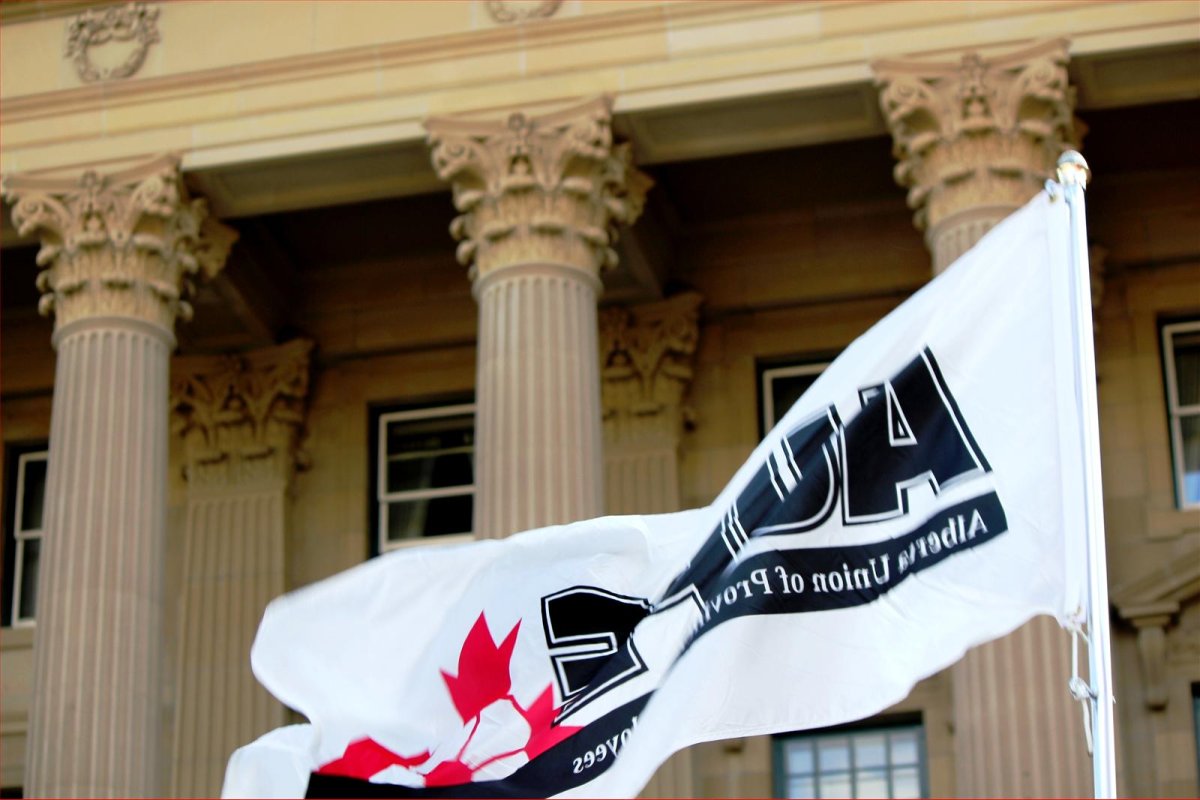EDMONTON – The province has announced it has extended the negotiating period with the Alberta Union of Provincial Employees (AUPE) until the end of March.

Under Bill 46, the province and the union had until Friday, Jan. 31 to negotiate a new contract.
However, on Tuesday, the Court of Queen’s Bench issued a stay of the Public Service Salary Restraint Act.
Thursday, Cabinet passed an order in council that would see the deadline moved to March 31.
“We have a refreshed mandate to go to the table with them on it. We will have a new negotiating team at the table,” explained Deputy Premier Dave Hancock. “We want to show every opportunity for a fresh start to really indicate that we want a negotiated agreement. Obviously we still have a fiscal framework to negotiate within but we have a mandate and ability to be flexible at the table.”
If a negotiated deal doesn’t happen by the end of March, under Bill 46, the government would impose a four-year wage agreement on Alberta’s 22,000 AUPE workers.
On Jan. 24, Hancock said there had been some “hopeful signs” from recent discussions with the AUPE, but the union said “no significant progress” had been made.
In a statement that Friday, the AUPE said negotiations with the government had not made significant progress since Bill 46 was passed.
Bill 46 – the Public Service Salary Restraint Act, which was introduced in early December – would see the government impose a contract with the AUPE that’s consistent with agreements already reached with Alberta’s doctors and teachers if a new deal isn’t reached by the end of March.
READ MORE: Alberta tables bill to end arbitration, legislate wage deal with biggest union
Deputy Premier Dave Hancock stressed Friday that the government would rather come to a negotiated settlement than legislate one.
“Government has always been very interested in a negotiated settlement, wants to have the union sit down. We’re very pleased that there were three days of discussions over the last week. We want AUPE to come back to the table to come to a negotiated settlement that would be fair to taxpayers and fair to employees.”
“We will not sign a deal that cannot be justified to our members,” said AUPE president Guy Smith on Jan. 24.
“It is frustrating because we have offered some significant movement, while the government has only made minor improvements to their position. They will need to make more significant movement before Jan. 31 if they truly want a negotiated settlement.”
READ MORE: Two Alberta bills have union crying foul
However, Hancock said there had been some “hopeful signs” in terms of the discussions, and that some offers had been put on the table, while he couldn’t get into specifics.
“We’re prepared to be flexible …within the fiscal parameters that we’ve got,” he added.
Hancock explained that the province’s “fiscal restraint agenda” requires government address salaries, and that public servants receive salaries that are “within market range” rather than leading the market.
“If a settlement within the market range is truly the government’s goal, they should have no qualms about allowing an independent arbitrator to make that decision, as was previously agreed, and was our legal right, before Bill 46 was passed,” said Smith.
The deadline for a negotiated settlement is now March 31.
“Bill 46 will come into force if there’s no negotiated deal by Friday morning and if Cabinet has not extended – there is built in a provision to extend it to the end of March – and our preference is a negotiated settlement,” said Hancock, before the extension was made.
“We’re prepared to be there at the table. We would encourage the union to be there at the table. There’s a deal to be had.”


Comments